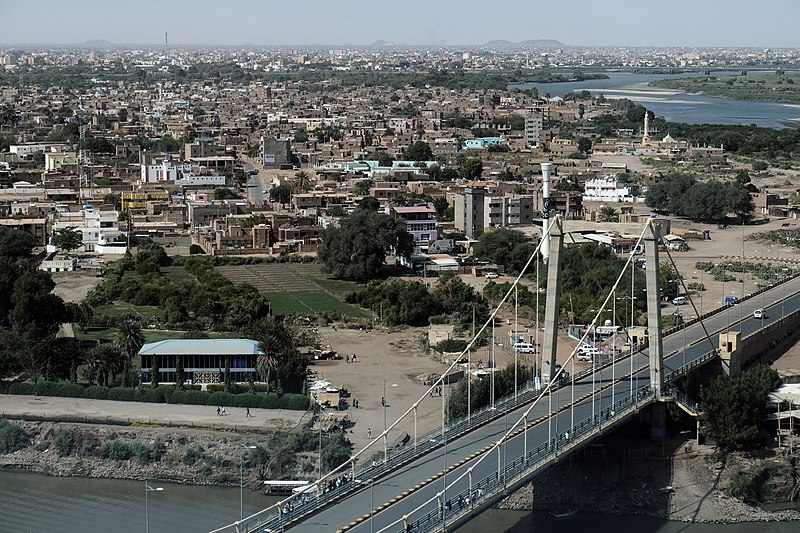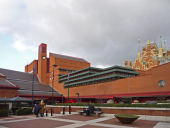
The BBC has obtained fresh evidence of the brutal ethnic violence that has engulfed western Sudan since the conflict began between two rival military factions in April. Analysis of satellite and
social media data indicates that at least 68 villages in Darfur have been set ablaze by armed militias during the course of the civil war.
The UK Minister for Africa, Andrew Mitchell, declared that this situation bears "all the hallmarks of ethnic cleansing." This marks the first instance of the British government using this term to describe the events taking place in Sudan.
General Abdel Fattah al-Burhan, who leads one of the warring factions, the Sudanese Armed Forces (SAF), stated to the BBC that he is willing to cooperate with the International Criminal Court (ICC) to bring those responsible to justice.
Much of the ethnic violence is attributed to militias associated with, or affiliated to, the Rapid Support Forces (RSF), a paramilitary group vying with SAF for control of the country.
The RSF has consistently denied any involvement in the violence in the region and has called for an independent international investigation.
The analysis has been conducted by the Centre for Information Resilience (CIR), a research organization partially funded by the British government, which collects open-source evidence related to the Sudan conflict.
They employ NASA heat-detection technology to identify fires, examine satellite images to detect smoke and fire-damaged structures, and correlate these findings with geolocated social media content, using maps and photographs.
The most recent verified fires occurred in Amarjadeed, a village in southern Darfur, where NASA and satellite imagery showed burn marks between September 18 and October 9.
This analysis helped CIR establish how one militia convoy set fire to at least nine villages in a single day, on August 16.
They began by using NASA's heat-detection technology to pinpoint the potential locations of fires. Then, they utilized satellite imagery to determine whether these fires were linked to known population settlements.
The CIR reviewed social media posts from western Sudan, revealing militias setting villages ablaze and looting essentials like grain, TVs, and vehicles.
They scrutinized what the fighters said and what they wore to identify them. White ribbons worn by some militia members indicated their affiliation with the loosely connected Bani Halba Arab group, which has ties to the RSF.
In videos on social media, these militias were observed wearing white ribbons as a form of identification.
Social media images were geolocated by matching them to identifiable mountains and structures, revealing a pattern of militia setting fire to one village after another, particularly in Darfur, where some of the most intense violence outside Khartoum is occurring.
This violence sometimes results from infighting between rival Arab groups, while in other instances, Arab fighters target non-Arab groups, such as the Massalit, the largest local ethnic group centered in West Darfur's capital, El Geneina.
The situation has become ethnic in nature, leading to widespread insecurity. Amin Yakubu, who was forced to leave his home in Darfur when Arab militias attacked, described the escalating conflict.
Twenty years ago, hundreds of thousands of people died in Darfur amid confrontations between non-Arab rebel groups and the Janjaweed militia, which later evolved into the RSF. Some Janjaweed leaders and the former president, Omar al-Bashir, have been indicted by the ICC on charges of genocide and crimes against humanity, which they have denied.
The fear now is that similar atrocities are occurring along ethnic lines in the region.
Andrew Mitchell stated, "This has all the hallmarks of ethnic cleansing, and it's happening as it did back from 2003 onwards, even more ferociously."
The United Nations shares these concerns. Clementine Nkweta-Salami, the UN's humanitarian coordinator in Sudan, reported increasing cases of sexual and gender-based violence, forced disappearances, arbitrary detention, and severe violations of human and children's rights as the conflict spreads.
The UN estimates that 1.2 million people have fled to neighboring countries since April. It also notes that approximately half of Sudan's population, about 24 million people, require humanitarian assistance.
There are worries that the violence could spill over into neighboring nations and exacerbate regional tensions. There are also concerns that it could escalate into a proxy conflict, amid reports that the United Arab Emirates has supplied weapons to the RSF, an allegation Emirati officials have denied. Photo by Christopher Michel from San Francisco, USA, Wikimedia commons.








































